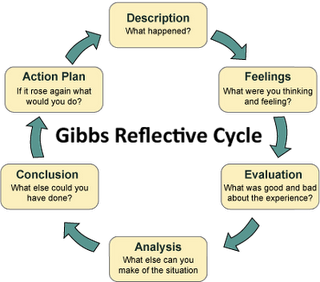For this young professional we are going to be focussing on your Self management skills. You might already know that your self management skills are made up of initiative, organisation and accountability.
If you’ve missed any of the previous challenges or information you can catch up here.
Looking back on what we’ve learnt and how far we’ve come is something we don’t always do. When we finish a project, a school year or a job we tend to focus on the next big thing without taking the time to look back on what we’ve learnt. Taking a reflective approach not only shows real initiative but also it helps to make sure you are staying accountable too – you must be starting to see why it fits in to your self management tool kit already!
What is reflection?
Reflecting in this sense is all about looking back at what has happened, thinking about what has gone well, what has gone badly, what you would differently next time (what you’ve learnt!).
What’s the process?
You might think that you are always thinking about what you’ve done and that you naturally just learn and move forward but often you can find that you just focus on the good, the bad or the “I am never volunteering for that again”.
Getting into the habit of asking yourself a set of questions will make sure you are learning from the whole experience and that you are ready to take it on again if you need to!
There are a few different models you can use (and we are a big fan of you designing your own too) but we are going to use Gibbs Reflective Cycle.
What should you be reflecting on?
The Gibbs model is useful to reflect on projects and team work activities as they come to an end but it is also useful to use it to reflect on problems too. You do not have to wait until the end of a project to be reflective it is really handy to do it at different stages or perhaps when you are meeting key deadlines or encountering problems.
Use reflection in positive incidences, have you played better in your chosen sports this year, have your homework grades gone up or have you met a deadline much sooner than you thought? Use your reflection tools to look at why and make sure you are recognising your great work.
You can also use reflection when you’ve overcome a challenge, it will really help to ensure you are learning from your experiences.
Why is is useful?
Reflective learning helps us in lots of ways it gives an idea of our strengths and weaknesses, it helps us learn about our mistakes and ourselves and it can help us organise ourselves for future projects.
Understanding how we are improving, what works for us and what we can improve on is important for our self management skills and supports us to develop ourselves. Employers also like to see employees who can who can show what they have learnt and who are aware of the areas they need to develop in.
The Challenge
It’s time to get your metaphorical mirror out and do some self reflection. This week we would like you to to think about the past month, perhaps you are in a new school year, started a new job or you might think nothing has changed at all but start by using the Gibbs model and think about what you’ve you learnt, what is really going well and what you might do differently next month.








